Throughout the 2016 election and in the early years of the Donald Trump’s presidency, a number of books on the plight of America's working class hit bookstore shelves—and, in some cases, the bestseller list. Hillbilly Elegy by J.D. Vance, then a prominent Trump critic and now the former president's running mate, was one of them. But there were also other books, by such authors as Elizabeth Catte, Stephanie Land, Arlie Russell Hochschild, Sarah Smarsh, and Steven Stoll, that told their own compelling stories about working class life.
Such titles received particular media attention in those years as pundits endeavored to explain the Trump phenomenon. But plenty of astute and, in many cases, moving works in the same vein have been published in the last two years as well, including new titles by both Stephanie Land and Arlie Russell Hochschild. The following are eight recent books worth reading about the lives of working class Americans as the 2024 election cycle enters its final phase.
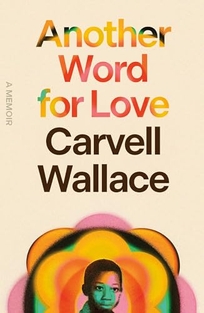
Carvell Wallace. MCD, $28 (272p) ISBN 978-0-374-23782-0
In this stunning self-portrait, journalist Wallace (
The Sixth Man) examines the role of love in his life. Growing up Black in the “blindingly white” suburbs of Pittsburgh under the care of his single mother, Wallace endured periods of homelessness that ignited a lifelong fear of abandonment. As a child, he learned that “to be a man” was “to be contained, held within, under control,” a perspective that caused him great pain as he entered adulthood and slid into alcoholism. After his drinking precipitated his divorce from his first wife, Wallace got sober, entered a new relationship, fathered two children, and began reflecting on the developments that helped him self-actualize, from attending a queer, POC-focused sex party to learning to say “no.” Early on, Wallace admits that he “can’t resist weaving stories out of aching trails of hurt,” but it’s his directive to “turn yourself over and over and over again to the honest, divine, and wholly annihilating practice of love” that characterizes this account. The elliptical chapters don’t skimp on struggle (including a harrowing, near-deadly confrontation with L.A. police), but what elevates the narrative is Wallace’s capacity for forgiveness and his virtuosic—but never indulgent—prose. This profoundly compassionate volume hugs the reader tightly and doesn’t let go.
Agent: Jim Rutman, Sterling Lord Literistic. (May)Correction: A previous version of this review incorrectly stated that the author has two sons. He has a son and a daughter.
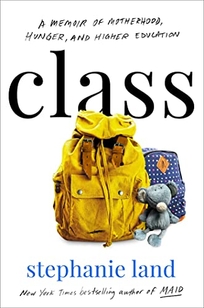
Stephanie Land. One Signal, $28 (288p) ISBN 978-1-982151-39-3
Bestseller Land (
Maid) catalogs her experiences juggling housecleaning jobs, childcare, and graduate school while battling poverty in this frank and captivating memoir. In lucid prose (“My whole body ached to give her more. She deserved ballet lessons if she wanted them and for someone to show her that it was okay to dream”), Land details the many tightropes she walked to balance her dreams of becoming a writer with what she “needed to do to survive as a single parent who struggled to make ends meet in endless, sometimes impossible ways.” After escaping an abusive relationship in her late 20s, Land moved from Washington State to Missoula, Mont., with her five-year-old daughter to pursue an MFA in writing. In the fall of her final year at the University of Montana, she unexpectedly got pregnant again and decided to keep the baby, to the consternation of the likely father. Land viscerally conjures the relentless grind she faced to obtain governmental aid and increased child support to cover food, heat, car repairs, childcare, and student loans while fighting to keep her daughter happy and her unborn child healthy without sacrificing her own professional dreams. Eye-opening and heartrending, this will provide succor for readers who’ve faced similar hardships and essential education for anyone who hasn’t. It’s another stirring personal history from one of the foremost chroniclers of 21st-century economic anxiety.
Agent: Mollie Glick, CAA. (Nov.) 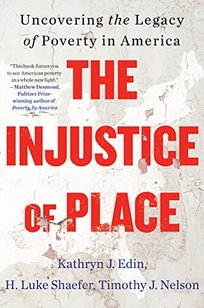

Kathryn J. Edin, H. Luke Shaefer, and Timothy Nelson. Mariner, $29.99 (352p) ISBN 978-0-063-23949-4
Edin and Shaefer (coauthors,
$2 a Day, and, respectively, a sociologist and University of Michigan public policy professor) team up with public affairs scholar Nelson (
Doing the Best I Can) to reframe the history of poverty in the U.S. in this essential study. Ranking communities on the basis of income, birth weights, life expectancy, and intergenerational mobility, they find that the country’s most disadvantaged areas are rural ones—Appalachia, the Mississippi Delta, the Tobacco Belt in South Carolina, and south Texas. The authors argue that from the 18th through the 20th centuries these regions were intentionally treated by government policy as “internal colonies.” With economies based on resource extraction (coal, timber, cotton, etc.) and usually populated by majority people of color, these were places where labor was systematically exploited, elites controlled both local and state governments, and public services were meager. According to the authors, these regions “still retain, to a greater or lesser degree, features of the internal colonies they once were,” because of inherited problems such as local government corruption, lack of social infrastructure, and structural racism. This eye-opening account provides a powerful lens with which to view contemporary inequality in America.
(Aug.) 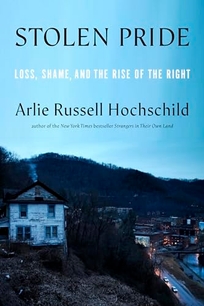
Arlie Russell Hochschild. New Press, $30.99 (400p) ISBN 978-1-62097-646-3
Shame is driving the rightward turn in economically depressed rural areas, according to this piercing analysis. Hochschild, a sociologist at UC Berkeley, revisits the themes of
Strangers in Their Own Land, this time interviewing the residents of Pikeville, Ky.—located in one of the whitest, poorest, and most conservative counties in the country—to understand how the once purple coal town turned deep red. She finds that many in Pikeville are entangled in what she calls “the pride paradox,” or the tension between dwindling economic opportunities and the belief that one’s successes or failures in life reflect one’s abilities. Residents consequently blame themselves and feel ashamed when their lives don’t turn out how they’d hoped, which, Hochschild argues, drives them to support Donald Trump, whose shamelessness provides a “cathartic release” for his followers. Hochschild’s empathetic profiles suggest a sinister side to American individualism as ordinary people hold themselves responsible for problems that arise from systemic wrongdoing, like opioid addiction brought on by Purdue Pharma’s pill pushing. She also debunks common misconceptions about Trump’s base, revealing that “those most enthralled with Donald Trump were not at the very bottom” but instead were those “who aspired to do well” or “who were doing well within a region that was not.” It’s an impressive and nuanced assessment of a critical factor in American politics.
(Sept.) 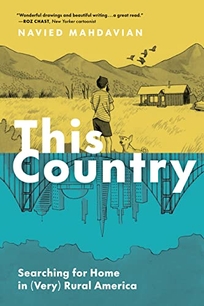
Navied Mahdavian. Princeton Architectural, $25.95 trade paper (288p) ISBN 978-1-79722-367-4
New Yorker cartoonist Mahdavian debuts with a charming, meditative graphic memoir that recounts three years he lived in the rural Midwest. In summer 2016, Iranian American Mahdavian and his wife, Emelie, move from the San Francisco Bay Area to six acres in Idaho to live “the millennial dream.” The locals mostly welcome them (and their tiny off-the-grid home), but “people in small towns,” Mahdavian says, “always know who you are.” Casual bigotry runs through neighbors’ nosy questions (“We were debating where your name is from”) as he and Emelie attempt to reopen the local theater (“You’re not trying to bring that Boise-Portland-Seattle-San Francisco artsy-fartsy social-justice-warrior crap here, are you?”) and work on their garden. During their struggle to conceive a child (eventually they do), the land also becomes a fertile canvas to interrogate identity and belonging in a country that rejects the unfamiliar. Poetic asides on botany, etymology, and Persian literature are interwoven between well-timed comedic beats, with Mahdavian unafraid to mock himself. The minimalist black-and-white art captures the intricate connections between place and identity, skillfully managing both moments of cartoon comedy and elegant environmental portraiture. This exceptional debut is a sublime self-examination that’s perfect for fans of Yeon-sik Hong’s
Uncomfortably Happy or Eleanor Davis’s
The Hard Tomorrow. Agent: Dan Mandel, Sanford J. Greenburger Assoc. (Sept.) 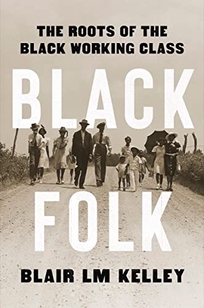
Blair Kelley. Liveright, $30 (304p) ISBN 978-1-631-49655-4
Historian Kelley (
Right to Ride) delivers a poignant and celebratory chronicle of Black labor movements in America. Alongside more well-known stories, such as the unionization of Pullman porters, Kelley also sheds new light on Black women’s contributions to labor struggles. In the late 19th- and early 20th-century South, Black laundresses, recognizing white employers’ dependence on their skilled work, cooperated to control their working conditions and time through jointly planned holidays, labor strikes, and an insistence on collection service rather than in-home service. When Black women joined the Great Migration north in the early 20th century, informal labor restrictions pushed them into domestic work, which made them especially vulnerable during the Great Depression. With 90% of Black women working in positions ineligible for Social Security, minimum wage, and other benefits, “New Deal regulations gave racial bias the force of law,” according to Kelley, who posits that these women were architects of the organizational structures, such as informal childcare networks and fund-raising systems for family reunions, that laid the groundwork for the civil rights movements of the 1950s and ’60s. Full of persuasive insights into Black working-class life and the legacy of communal care spearheaded by Black women, this is a powerful reimagining of the history of labor in the U.S.
(June) 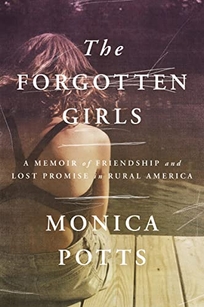
Monica Potts. Random House, $28 (272p) ISBN 978-0-525-51991-1
FiveThirtyEight reporter Potts debuts with a compassionate look at the rapid decline in life expectancy among “the least educated white Americans.” In 2015, Potts began returning to her Ozark hometown of Clinton, Ark., to investigate this trend and reconnected with her childhood best friend, Darci Brawner, a single mother of two who had fallen into drug addiction. In the book’s first section, “Causes,” Potts recounts her teenage years with the free-spirited, caring, and intelligent Darci, and documents how Darci’s partying and sexual experimentation drove a wedge between them. By the time Potts gave her high school’s valedictory address, Darci had gone through a miscarriage, tried crystal meth, and missed so many days of school that she couldn’t graduate. The second half of the narrative, “Effects,” is a harrowing chronicle of Darci’s downward spiral after high school and Potts’s fraught attempts to help her after they reconnected. Throughout, Potts draws on extensive interviews with friends and family to reveal how poverty, generational trauma, substance abuse, and the suffocating righteousness of the evangelical church limit women’s options in places like Clinton. It’s a potent study of what ails the depressed pockets of rural America.
Agent: Elyse Cheney, Cheney Agency. (Apr.) 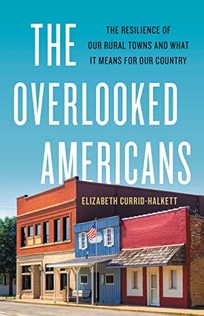
Elizabeth Currid-Halkett. Basic, $32 (432p) ISBN 978-1-5416-4672-8
In this astute survey, Currid-Halkett (
The Sum of Small Things), a professor of urban planning and public policy at the University of Southern California, challenges the “myth” of an America split apart by geography. Drawing on statistical data and interviews with people from across the country, she debunks the prevailing view of small-town America as poorer, less educated, and more illiberal than the nation’s metropolitan areas. This skewed perspective, she claims, is based partly on ignorance, but mostly on media outlets that traffic in fear, anger, and anxiety and politicians who find value in sowing discord. While distinctions do exist (rural Americans talk more about religion, have a greater sense of community, and are less invested in meritocracy; urbanites are more outspoken about progressive issues like abortion rights and gay marriages and more accepting of the government), on objective measures such as income and voting behavior and subjective measures such as happiness and empathy, Currid-Halkett’s research reveals more similarities than differences. Though she highlights numerous issues facing America, including vaccine skepticism, climate denialism, and educational inequality, Currid-Halkett is a strong believer in “our shared sense of humanity [and] our belief in each other.” Idealistic yet well-grounded, this is a refreshing antidote to doom and gloom prognostications of where America is headed.
(June) https://www.publishersweekly.com/9780374237820
https://www.publishersweekly.com/9781982151393
https://www.publishersweekly.com/9780063239494
https://www.publishersweekly.com/9781620976463
https://www.publishersweekly.com/9781797223674
https://www.publishersweekly.com/9781631496554
https://www.publishersweekly.com/9780525519911
https://www.publishersweekly.com/9781541646728
 Another Word for Love: A Memoir
Another Word for Love: A Memoir Class: A Memoir of Motherhood, Hunger, and Higher Education
Class: A Memoir of Motherhood, Hunger, and Higher Education Stolen Pride: Loss, Shame, and the Rise of the Right
Stolen Pride: Loss, Shame, and the Rise of the Right This Country: Searching for Home in (Very) Rural America
This Country: Searching for Home in (Very) Rural America







